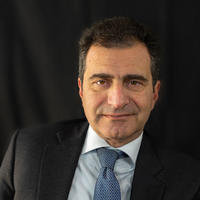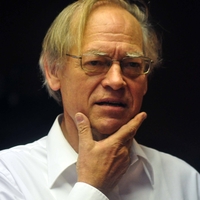
Chris Kwaja
Related Authors
Andreas Umland
National University of "Kyiv-Mohyla Academy"
Armando Marques-Guedes
UNL - New University of Lisbon
Tor Krever
University of Cambridge
Simon Springer
The University of Newcastle
Johannes Preiser-Kapeller
Austrian Academy of Sciences
Freedom C C Onuoha, Ph.D, fdc
University of Nigeria, Nsukka
Mauro Grondona
University of Genova
Nicola Lupo
LUISS Guido Carli
Danil Akbar Taqwadin
Universitas islam negeri Ar-Raniry
Eckart Otto
Ludwig-Maximilians-Universität München
InterestsView All (8)










Uploads
Books by Chris Kwaja
activities that are linked and interdependent to ensure Just Peace. Some of such
activities include peace education, restorative and transitional justice, development,
conflict resolution (dialogue, mediation, and negotiation), trauma
healing, multi-lateral and government efforts, and peacebuilding advocacy and
solidarity, among other actions (Lederach & Mansfield, 2016). The challenge
that peacebuilding faces in many societies, including countries like Sudan,
Libya, Syria, Yemen, and Nigeria, transcend beyond narratives of weak
interventions or insecurity. It is influenced, very often, by dilemmas that are
embedded in relatively weak and dysfunctional social structures that increase
opportunities for the protraction of violent conflicts and reverberation of patterns
that exacerbate insecurity. It continues to remain evident that peacebuilding
in many parts of Africa, including Nigeria, is affected by state fragility
and the weakness of institutions that have the mandate to develop and deliver
of operational (short-term) and structural (long-term) preventive actions to
institutionalize peace (Emah, 2019b; and Emah, 2019a). These challenges
are further deepened by the emergence of complex security dynamics that
immensely pressure the peace architecture of the state to constantly rethink its
strategies. They also shrink the limited resources available for providing security,
fracture inter-communal/intergroup relationships, and threaten economic
prosperity and individual livelihoods, and collective opportunities to attain
integral human development.
This chapter argues that to ensure peacebuilding delivers the best results in
circumstances of increased conflicts, insecurities, and fragility, the development
of actions should involve the integration of structural and operational prevention
(Ackerman, 2003), which also allows the maximization of various formal
and informal structures that can ensure constructive social changes. Systemic
assessments of peacebuilding within fragile contexts enable an improved
understanding of the interconnectedness of conflict issues and the effectiveness
and impacts of various approaches adopted to tackling insecurity and the
underlying drivers of conflicts, part of which is armed banditry and cattle rustling.
Even though re-conceptualizing peacebuilding in fragile states could be a
difficult and complicated process, it necessitates an evaluation of actions.
This evaluative process creates a dialogue between frameworks that both support
and legitimize formal and informal methods that build peace across various
groups and communities. In essence, transforming the challenges of cattle
rustling, armed banditry, state fragility, and various forms of insecurity and
conflicts in Nigeria needs the framing of actions that are not linear but address
the multi-level factors that escalate criminality and the lacunas in the delivery
of security (Okoli & Okpaleke, 2014b). This approach to peacebuilding supports
consistent evaluation of strategies, learning and reflecting on practice,
and accountability within the context of conflicts and fragility.